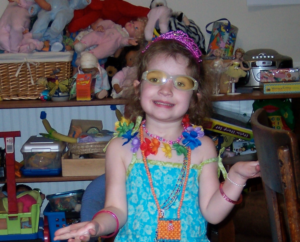Confessions of a (Former) Gifted Kid
“If you can’t sit still, you need to leave, now.” I remember those words being spoken to me the first time I took the ACT. I was so little that my legs didn’t even reach the ground at the testing center. Consequently, my main memory from that day is my foot falling asleep, and vigorously shaking it, much to the annoyance of the proctors. They made it very clear they ha d not signed up to be babysitters, and if I was “advanced” enough to be taking the ACT, I was “advanced” enough to be still. That was back when I was a “gifted” kid.
d not signed up to be babysitters, and if I was “advanced” enough to be taking the ACT, I was “advanced” enough to be still. That was back when I was a “gifted” kid.
Recently, I won’t lie, I haven’t been feeling very “gifted.” We can call it senioritis, or just the consequence of having spent the past sixteen years of my life in public school, but the result is the same. I am burned out.
I’m supposed to be taking a break from TikTok this week, but this topic reminds me of a trend that came across my feed a while ago. Former “gifted” kids, now all grown up, spoke about feeling exhausted.
They spoke about how the “spark” they once had– the one that maybe identified them as “gifted” in the first place– was dying. That got me thinking back to elementary school. I definitely had that spark and that love for learning back then– for goodness’ sake, I practiced multiplication facts for fun in my free time. On one hand, I cannot imagine doing that now, but on the other, I wonder why I stopped. Maybe it was the fact that I was identified as “gifted” in the first place.
When we really stop to think about it, identifying kids as “gifted” or “not gifted” is pretty awful. We might as well say “Susie is smart and has good things to offer the world. Bob is not smart, so he doesn’t have talents to bring to the table. He is not ‘gifted’.” Obviously, that kind of message hurts “average” or struggling children. But it also hurts children who excel in the classroom.
From a young age, I remember feeling so much pressure academically. One victory was never enough– as soon as one mountain was climbed–we were pushed into harder material. What started in kindergarten only grew as we did. By the time I was in high school, my friends and I packed our schedules full of AP classes, and stress-induced ulcers developed as a result. Before we were old enough to drive a car, we were driving ourselves insane with the pressure of being “perfect” gifted kids. And for what?
I don’t think our parents, teachers, or administrators meant to harm us. There wasn’t much research about the consequences of over-testing children and pushing us through curriculums at record speeds. The adults surely believed they were helping us to realize our full potentials, and academically, maybe they were. But at what cost? The cost of a well-rounded childhood.
When I think of my experience in school, particularly as a young child, I remember being anxious and miserable. Now, looking back as an adult, I find it disheartening that I associated learning with such stress and sadness. It doesn’t have to be that way.
Imagine an academic setting where learning is fun. Where it is okay to be “average,” and there is value in playing. Imagine a setting where kids can move when they need to, instead of being forced to conform.
That kind of environment exists overseas, specifically in Scandinavian schools. Amazingly, academic performance does not suffer. In fact, countries that allow children to play, encourage individuality, and do not push standardized tests from young ages, top the charts in education quality, performance, and happiness.
I know many Americans take pride in being “the best” at everything. But I think that’s the wrong message to be sending to our children. I hope we can evolve as a country to the point where creativity is encouraged, and where success is defined by happiness, not by GPA.
